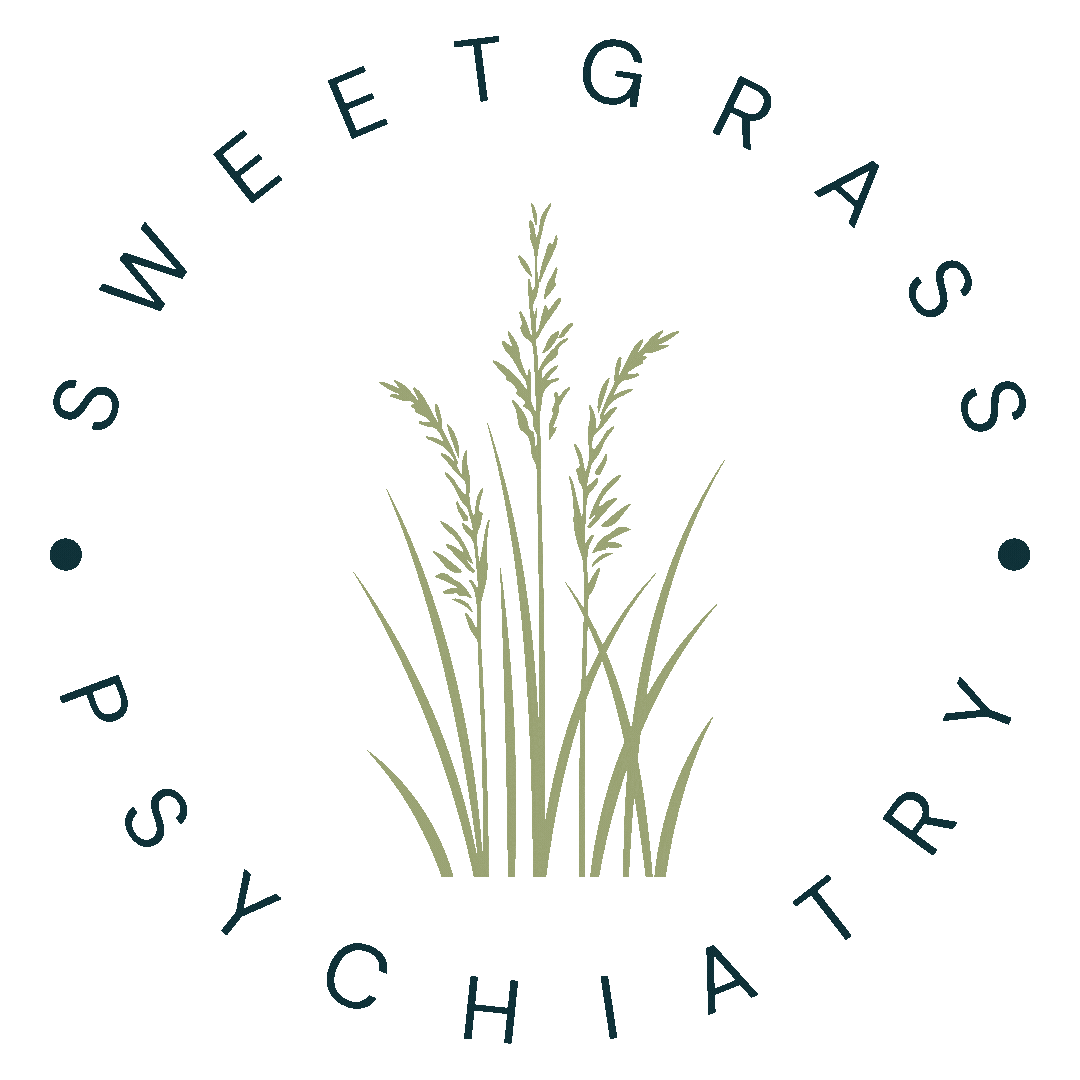
LED BY A HARVARD-TRAINED PSYCHIATRIST,
WE ARE SOUTH CAROLINA’s
premier destination for
exemplary mental health care.
We take insurance because we believe exceptional care should be within reach.
Sweetgrass Psychiatry
Welcome to your home for mental wellness.
This is a space where you are known, you are heard, you are valued.
We believe you deserve evidence-based, curated, comprehensive, safe, and compassionate care.
You are worthy.
We are redefining the practice of mental health care.
A modern approach to your mental health care - that is what we stand for. Rather than delivering outdated and ineffective treatments, we create a comprehensive care experience customized to meet your individual needs. We believe you deserve an elevated experience. We use cutting-edge therapeutic treatments combined with complementary, holistic care strategies to promote whole-person healing.
This patient-first approach ensures that you receive care as unique as you are. We work with you directly to determine the best therapy option to address your individual needs. We offer many different types of services including medication management, counseling services, group therapy, Spravato/Ketamine assisted treatment, genetic testing for medications, or transcranial magnetic stimulation.
We are proud to be
100% LOCALLY OWNED
and feel a deep sense of commitment to our South Carolina community. That’s also why we take most major health insurance plans and Medicare. We want to prove that superior care can also be affordable.
Why choose SWEETGRASS PSYCHIATRY?
Expert Care
By spending more time with you, together, we develop personalized treatment plans from our highly-qualified experts, dedicated to providing superior mental health care.
Innovative Therapies
Experience the latest advancements in mental health treatment. Our access to cutting-edge therapies like Spravato and TMS provides new hope and possibilities for healing.
Holistic Approach
We believe true healing encompasses both mind and body. Our holistic approach integrates mental and physical health care, supporting your overall well-being.
Accessibility
Quality mental health care should be within everyone's reach. We accept most major insurance plans and Medicare, making your journey to wellness more accessible.
Meet Our Exceptional Team
Our team of experts uses an intentionally different approach to care, from meditation to medication management, available in-person or from anywhere in South Carolina.
Our Physicians
Our team of board-certified psychiatrists, physician assistants, and nurse practitioners brings a wealth of experience and knowledge to Sweetgrass Psychiatry.
Our Therapists
Our skilled and empathetic therapists offer a safe and supportive space for you to explore your thoughts, feelings, and challenges.
Our Admin Team
Our dedicated administrative team is committed to providing you with a seamless and welcoming experience.

SWEETGRASS PSYCHIATRY
·
WHERE EXPERTISE MEETS EMPATHY
·
SWEETGRASS PSYCHIATRY · WHERE EXPERTISE MEETS EMPATHY ·
Led by a Harvard trained psychiatrist,
we practice a MODERN, PATIENT-CENTERED APPROACH to mental health care.
We accept most major insurances because we believe care should be accessible.
Medication Management
Our experienced clinicians provide expert medication management for a variety of mental health conditions using shared decision making principles.
Integrated & Holistic
Primary Care
Our integrative primary care services prioritize your overall well-being, offering comprehensive care for both mind and body.
Psychotherapy
Our clinicians believe you are the expert of you. We offer a variety of evidence-based psychotherapy options including individual, marriage/couples and family therapy. We don’t believe in a one size fits all therapy model.
Spravato ® & Ketamine Therapy
We offer this FDA-approved, insurance-covered, safe, cutting-edge treatment to eligible patients with major depression.
Transcranial Magnetic Stimulation (TMS)
We offer this safe, highly-effective, medication-free and FDA-cleared treatment for the treatment of depression.
Keep in Touch.
We view our patients as an extension of our local family. We value treating you with the respect, understanding, quality service, and kindness you deserve while also emphasizing accountability and boundaries with our unique clinician-client relationships. We strive to offer timely responses to any questions, needs, or concerns that arise, and we also ask for patience and grace due to the sheer volume of calls, texts, and portal messages we receive daily.
We look forward to hearing from you soon!
Layne Gritti, DO
We encourage you to stay in touch with your provider for non-urgent issues over the OnPatient Portal such as medication refills. We strive to respond to all portal messages within 24 business hours.
Medication Prior Authorizations
We use a third party healthcare company to assist with timely prior authorizations. Please allow ample time as insurance companies can take up to 72 hours to respond and may require an appeal.
Taylor Crews, APRN, PMHNP
We invite you to convert your appointment to a tele visit if needs arise. Please refer to your provider’s tele link on the website page below.




































